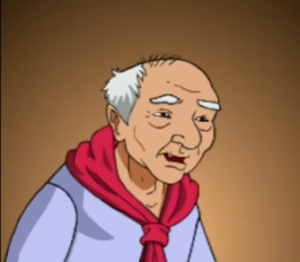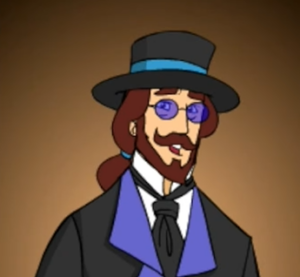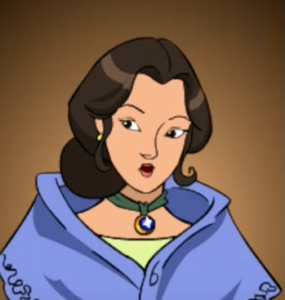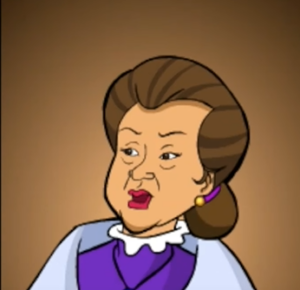Name: n/a (Real name unknown) “Capitan General”
Sex: M
Race: Spanish
Occupation: Governor of the Philippine Islands
Aliases: His Excellency, General
Affiliations: Government of Spain
Background
Very little is known about Capitan General before he got the position of Governor of the Philippines. When he was younger, he was a comandante involved in the war of Cuba. That is where he became friends with Simoun, who lent him money and earned his trust.
Capitan General got married at some point. Three years before the events of El Filibusterismo (El Fili), he was appointed to the Philippines by the Spanish minister. However, it is not known why or how Capitan General was chosen. He moved to the Philippines, bringing his wife with him. One of his houses is located in Los Banos, where he tends to conduct his meetings with his advisors to help him. While in Manila, he stays in the palace. He has developed a reputation among Indios of being strict, greedy and promoting injustices in the country, though according to Simoun this is due to his manipulation. At the beginning of El Filibusterismo (El Fili), Capitan General’s term is five months away from ending.
Story
Chapter 1: Simoun is described as the consultant of Capitan General, and it is revealed that they met at Havana, where Simoun lent him money.
Chapter 2: Basilio and Isagani discuss the petition for the Academy for Spanish with Capitan Basilio, and explain that they gave Padre Irene two chestnut horses so he could discuss the permit with Capitan General.
Chapter 4: When Cabesang Tales refuses to give up his fields to the friars, everyone in town becomes afraid of him so Capitan General orders all firearms to be confiscated.
Chapter 10: Capitan General is mentioned in this chapter. Families want to be on good terms with Simoun, just because he is Capitan General’s friend.
Chapter 11: The chapter begins with a flashback of Capitan General hunting in Bosoboso. Because his entourage is so large and noisy, he doesn’t catch anything. The gobernadorcillos and cabezas de barangay are afraid he will take his anger out on them. Secretly, he is relieved because he is afraid to miss in front of so many people. He ends the hunt and tells fake stories about how his experiences hunting in other countries were better.
In Los Banos, Capitan General plays tresillo in his house with Padre Irene, Padre Sibyla and Padre Camorra. He doesn’t realize that Padre Irene and Padre Sibyla are letting him win on purpose so that he will favor their opinions when it comes to deciding on issues. Capitan General’s secretary is serving as alcalda of the game, while bringing up topics for Capitan General to decide on. When Padre Camorra quits the game out of anger, Capitan General asks Simoun to join.
Simoun asks Capitan General to give the following if Simoun wins:
- 5 tokens
- An IOU for 5 days of incarceration
- Another one for 5 months
- A codicil, blank deportation order
- An authorization aka a summary execution expedited by the guardia civil
Capitan General asks what Simoun plans to do with those and Simoun tells him he wants to have all the virtues so he can put them in a sack and throw them into the sea. It is revealed that Simoun told Capitan General that he had been ambushed by tulisanes who had shotguns and rifles. Because of that, Capitan General is going to issue a new decree about sporting firearms.
Simoun calls the tulisanes “the most honest men in the country” and Don Custodio thinks Simoun is being rude just because he is close to Capitan General. Padre Irene jokes about Simoun being one of the tulisanes and Simoun says if they all lived in the forests then the country would be saved, and that Capitan General would be able to play tresillo without being distracted by the secretary. The secretary yawns, which makes everyone laugh. Capitan General asks if there is anything left to decide on.
The issues Capitan General settles include the following:
- Whether sporting firearms should be illegal
The secretary brings up sporting firearms and Capitan General says to forbid them. The secretary argues that other countries don’t but Capitan General doesn’t want to imitate other countries. Simoun suggests only banning sporting arms with a caliber of 6 mm and everyone agrees.
- Whether the schoolmaster of Tiani should get a new school
Capitan General has heard complaints about the schoolteacher and says he should be suspended. He gave money for materials before and thinks the schoolmaster doesn’t have a right to complain when there are people starving. The secretary tries to argue for the schoolmaster.
- Whether cockpits should be used as schoolhouses (Don Custodio’s project)
Capitan General says he would rather resign than have classes canceled whenever there’s a game at the cockpit. Don Custodio argues that buildings for vices exist but buildings for letters don’t. Capitan General ends the discussion.
- Whether an academy for Spanish should be opened (petition of students)
Some people are for it while others are against, so everyone starts arguing until Capitan General says they will discuss the matter the next day.
- Whether Tandang Selo should be released from prison
Capitan General tells the secretary to send a note to the teniente of the guardia civile to free Tandang Selo, to show they are forgiving and compassionate. Capitan General looks at Ben Zayb, who winks.
Chapter 14: Capitan General is mentioned as the students discuss the petition for the Academy for Spanish at Macaraig’s house. Sandoval says that Capitan General would not allow himself to be influenced by friars. Pecson mentions an incident wherein Capitan General chose a Provincial of the litigating order to settle a dispute between friars and people, though it is unsure if he is referring to the current Capitan General or a previous one. Macaraig tells the students that according to Padre Irene, Capitan General was “neutral” on the issue.
Chapter 16: At Chinaman Quiroga’s dinner, merchants are said to be complaining to Simoun about their businesses failing because they think he will talk to Capitan General to help them. A merchant says that Capitan General decreed the demolition of houses made out of light material. It is also revealed that Chinaman Quiroga respects Simoun because he believes Simoun is convincing Capitan General to favor the Chinese. An incident is mentioned wherein mestizos and natives were fighting so Capitan General decreed that everyone should sit like the Chinese; it is unknown whether the current Capitan General was the one mentioned or if it was a previous one.
Chapter 21: People speculate that Capitan General got involved, causing the permit for the play to be approved. Padre Salvi is later seen talking to someone, telling that person that the friars have more power than Capitan General.
Chapter 22: The play has not begun because Capitan General has not arrived. When he arrives at the theater, the play begins. During the play, Getrude sings while looking at Capitan General.
Chapter 28: After the poster incident, people are panicking and spreading rumors. One of the rumors is about the students and how they were supposed to see Capitan General, but he was having a meeting with the Provincials, Padre Sibyla and Padre Irene instead.
Padre Irene also tells Capitan Tiago that Capitan General was advised to spread terror to teach subversives a lesson.
Chapter 31: When some students are freed from prison, people praise Capitan General for being merciful. Basilio is left in jail because Capitan General was advised to do so. This bothers High Official, who argues with Capitan General about Basilio’s fate. Capitan General thinks Basilio should stay in jail because:
- Basilio being in jail will remind people to respect authority.
- He always disagrees with the high official, and wants to spite him.
- Basilio will stay in school longer and studying will be good for him.
- If innocent people like Basilio are put in jail, then people will be terrified.
- The good of one (Basilio) should be sacrificed for the good of many.
Capitan General and High Official argue about the Philippines. High Official is angry at Capitan General for not caring more about the country, telling him he was chosen by Spain to lead it which is why he should represent Spain well. Capitan General doesn’t care and just asks High Official when the boat is leaving. This causes High Official to resign and leave to return to Spain.
Chapter 32: It is revealed that Capitan General made a rule where the only Indios that can “spend and live with ease” in European cities are allowed to get a passport. Capitan General’s command is mentioned to be expiring in May. People spread rumors that Simoun asked Capitan General to extend his term but Capitan General refused. At the end of April, there is an announcement that Capitan General will be the godfather and sponsor of Juanito Pelaez and Paulita Gomez’s wedding, and that it was arranged by Simoun. Two days after the wedding, Capitan General is set to leave the Philippines.
Chapter 33: The rumors turn out to be true that Simoun tried to get Capitan General to extend his leave. Capitan General refused because he was afraid of what people might say. People speculate that Simoun also will not stay because without Capitan General around, people will be able to get revenge on Simoun.
When Simoun reveals his plan to Basilio, he says he convinced the military that Capitan General will stage a fake uprising and use it as an excuse to stay longer.
Chapter 34: Capitan General is godfather of the wedding but does not attend. Don Custodio attends in his place, and his wedding gift (a lamp) is to be brought by Simoun. Don Timoteo Pelaez is described as willing to commit crimes if Capitan General had asked him to.
Chapter 35: The wedding fiesta takes place in Capitan Tiago’s old house and Don Timoteo Pelaez is getting tired of waiting for Capitan General to show up. Capitan General soon arrives with his wife, and Ben Zayb compares Capitan General to Jupiter.
Capitan General is sad that the event is his last victory after three years of ruling. He comforts himself by thinking he is bringing a lot of money back to Europe. But he remembers he has enemies in the Corte, like High Official. He is aware that other generals became bankrupt and wonders if he should have stayed longer. Capitan General realizes that people are staring at him now and not hiding their dislike of him.
In the dining room, while sitting with Padre Irene, Padre Salvi and Don Custodio, a parchment is passed around and Capitan General reads it. He asks who Ibarra is. Everyone gets nervous but Capitan General says to continue eating (though he is shaking). When the lamp dims, Capitan General asks Padre Irene to turn up the wick. Then, the lamp is stolen and the dining room goes dark.
Chapter 36: While Ben Zayb writes an article about the bomb plot, he exaggerates the story and says sauce landed on Capitan General’s brow. Ben Zayb tries to depict Capitan General as a hero since he thinks Capitan General will read his article. The next day, the editor tells Ben Zayb that Capitan General banned any discussion of the incident. The editor explains to Ben Zayb that according to Capitan General, if people knew there was a robbery, it would threaten the integrity of the nation. Capitan General has ordered that no one will search for the lamp or the thief, and that all generals in the future has to have guards when dining anywhere. Ben Zayb understands and thinks Capitan General’s choice is an act of heroism.
Later, when robbers of the Pasig villa confess, they admit that a Spaniard was supposed to guide them on the night of the bomb plot, and that he was acting on orders of Capitan General so that the military would join them.
Chapter 39: At this point, Capitan General has already left the country. Padre Florentino thinks Simoun is wounded because his “friend and protector” Capitan General is gone and people got revenge on Simoun.
While telling Padre Florentino his story, Simoun explains that he met Capitan General in Cuba and lent him money, eventually becoming his friend and hiding his crimes. Simoun confesses that he manipulated Capitan General and encouraged him to be greedy and commit injustices.
Physical Description
Capitan General’s appearance is not described in the book.
Personality
Even though Capitan General has developed a reputation for being greedy and strict, throughout El Filibusterismo (El Fili), he is very friendly toward everyone he talks to, including his own secretary. However, this may be because Capitan General only speaks to prominent figures of Manila throughout the book, and never interacts with regular people such as students.
Capitan General is at times very self-centered and is mostly concerned with what people think of him, such as when he worries about being embarrassed while on a hunting trip (Chapter 11). Despite being in charge of the Philippines, he is shown to be a poor leader. He does not seem to care about most of the population. He often makes decisions based on how he wants people to see him. Depending on Capitan General’s mood, he wants to be seen by the Philippine population as sometimes strict and sometimes merciful. For example, he decides to have Tandang Selo freed just so that people will think he is compassionate (Chapter 11). He also decides to end the discussion on Don Custodio’s project without providing alternate solutions, just because he thinks canceling school for cockpit events would send the wrong message to people. In Chapter 31, he decides to have Basilio stay in jail despite knowing that Basilio is innocent, just because he wants to spite High Official and remind people to respect his authority. He even refuses to extend his term just because he is afraid of what people might say (Chapter 33). In Chapter 35, he realizes that people are now staring at him with dislike, since his term is ending and they have no more reason to pretend to be nice to him.
Capitan General is used to everyone around him agreeing with him, and when someone does not, he will act very rude to them. This is very apparent when he argues with High Official, who points out all the flaws of Capitan General’s ruling. Capitan General decides to ignore him, leading to High Official’s resignation.
Capitan General is easily influenced by other people, and therefore can never make a firm decision if several people are giving him conflicting advice. He is most commonly influenced by Simoun as he often goes with Simoun’s suggestions, while ignoring the priests’ advice, such as when they demand to have the French play banned (Chapter 21).
Skills
Political power
Because of Capitan General’s position, he is considered the ruler of the Philippine Islands and has a final say on all issues. Any law he issues can be automatically passed without any other official’s approval. In Chapter 22, the French play does not begin until Capitan General arrives. Capitan General is feared and respected by almost everyone in the Philippines.
Relationships
See Relationships of Capitan General
Beliefs
On the Government
“To govern is to work that way, Senor; often one must sacrifice the good of one for the good of many… But I am doing more: from the good of one man I derive the good of all, I preserve the principle of authority so threatened, its prestige is respected and maintained. With this act of mine I correct our own errors and those of the others.” (Chapter 31)
Capitan General believes that the government and people must make sacrifices to achieve a greater good. He tends to bring up only the biggest national issues as an excuse to ignore smaller issues. When asked to provide a schoolmaster with a roof for his schoolhouse, he gets angry instead and says that the schoolmaster does not have the right to complain when there are people starving (Chapter 11).
He also believes that people should be afraid of the government, so that they will respect it. He scares the public by leaving Basilio in jail despite his innocence (Chapter 31).
On the Philippines
“The country, what have I got to do with the country? Have I by chance contracted obligations with her? Do I owe her my office? Was she the one who had me elected?” (Chapter 31)
Capitan General does not care about the Philippines and even admits this to High Official (Chapter 32), claiming it is because the Philippine people did not choose him as their leader. He only did his job because Spain assigned him to, and on the last few months of his term, cares only about the money he will be bringing back to Spain (Chapter 35).
On Hispanization
Capitan General does not seem to have a strong opinion on Hispanization and is unable to decide whether the petition of the students for an Academy for Spanish should be approved.
On Censorship
As one of his final acts as a leader, Capitan General shows he has no problems with purposely censoring news in the Philippines. He bans any discussion of the bomb plot incident in the media, because he believes it would “threaten the integrity of the nation” (Chapter 36).
Trivia
- List of rules made by Capitan General:
- All firearms in Tiani must be confiscated. (Chapter 4)
- All sporting arms with a caliber of 6 mm must be banned. (Chapter 11)
- All houses made of light materials must be demolished. (Chapter 16)
- Everyone should sit like the Chinese (possibly decreed by a different Capitan General) (Chapter 16)
- Only Indios that can afford to spend and live in Europe can be allowed to have passports. (Chapter 32)
- No discussion of the bomb plot incident is allowed. (Chapter 36)
Quotes
“The schoolteachers here do wrong to ask for edifices when those of the Peninsula die of hunger. It is great presumption to want to be better than the mother country itself!” (Chapter 11)
“I have nothing more than my conscience, I behave according to my conscience, my conscience is satisfied.” (Chapter 31)






